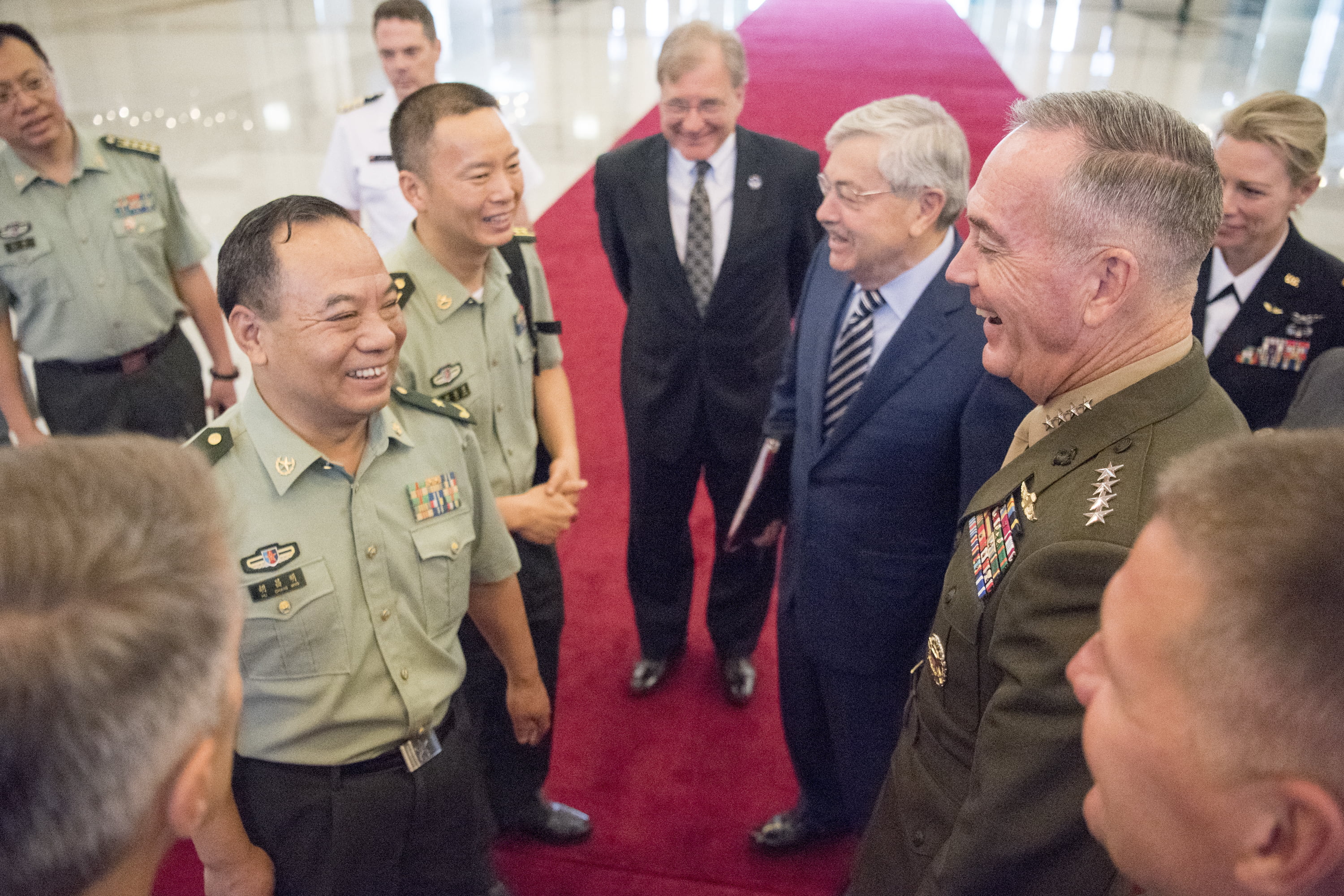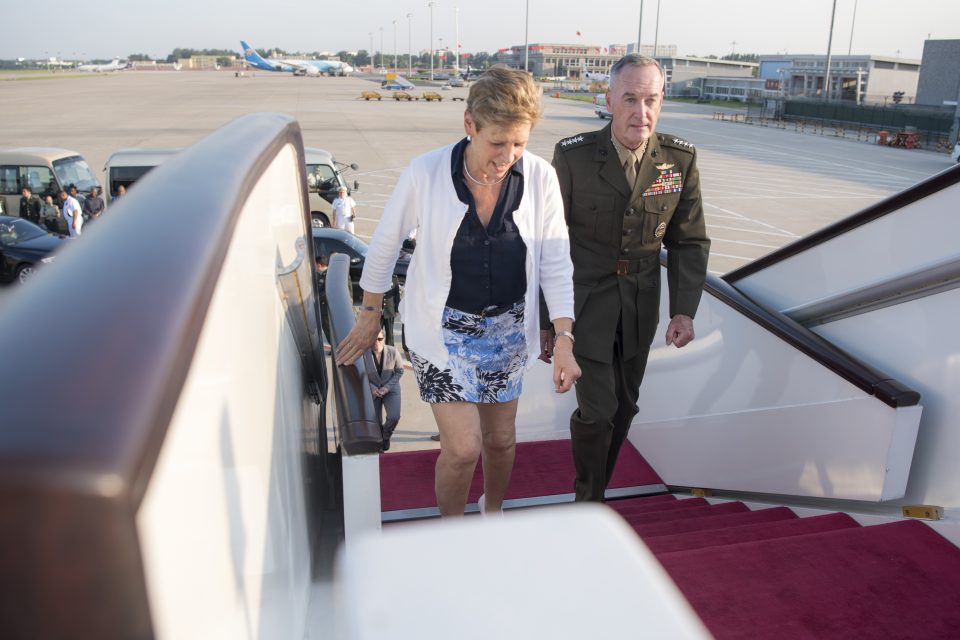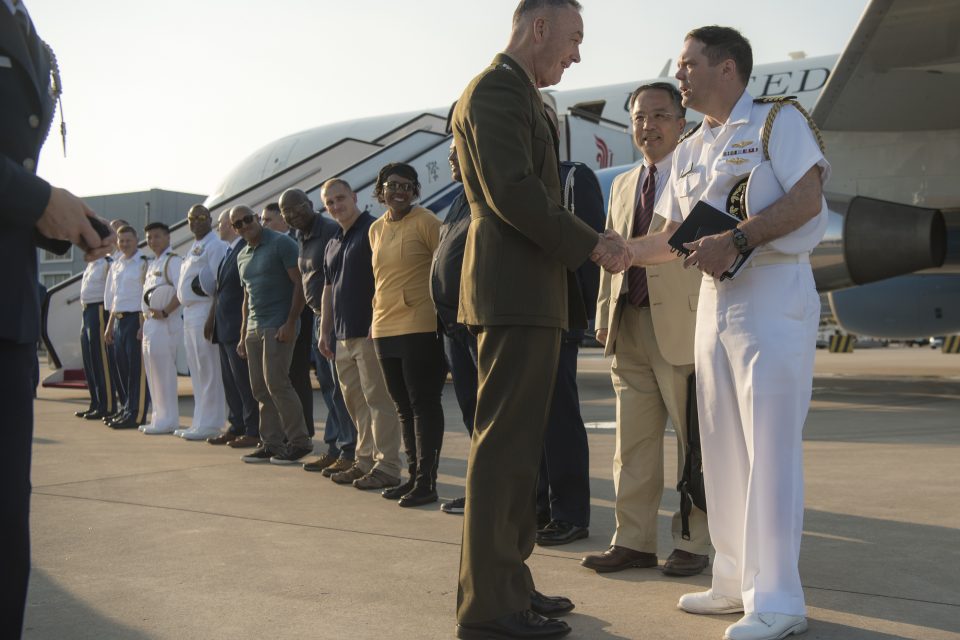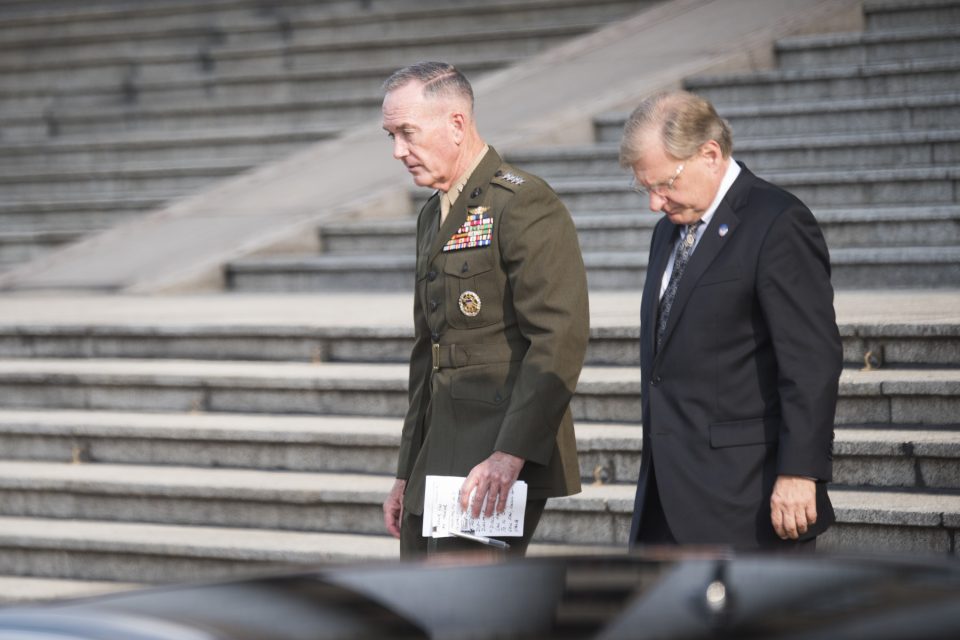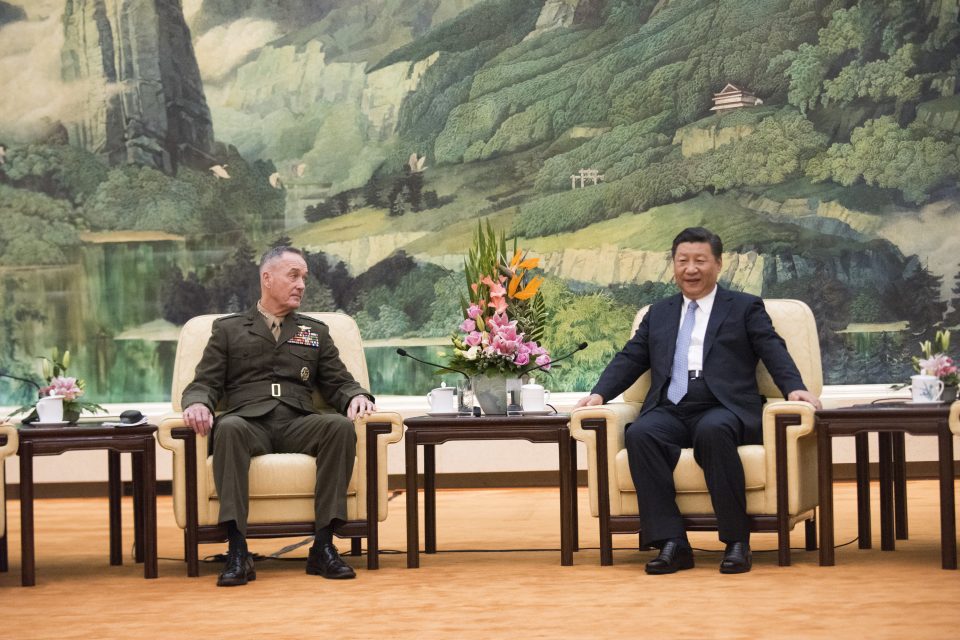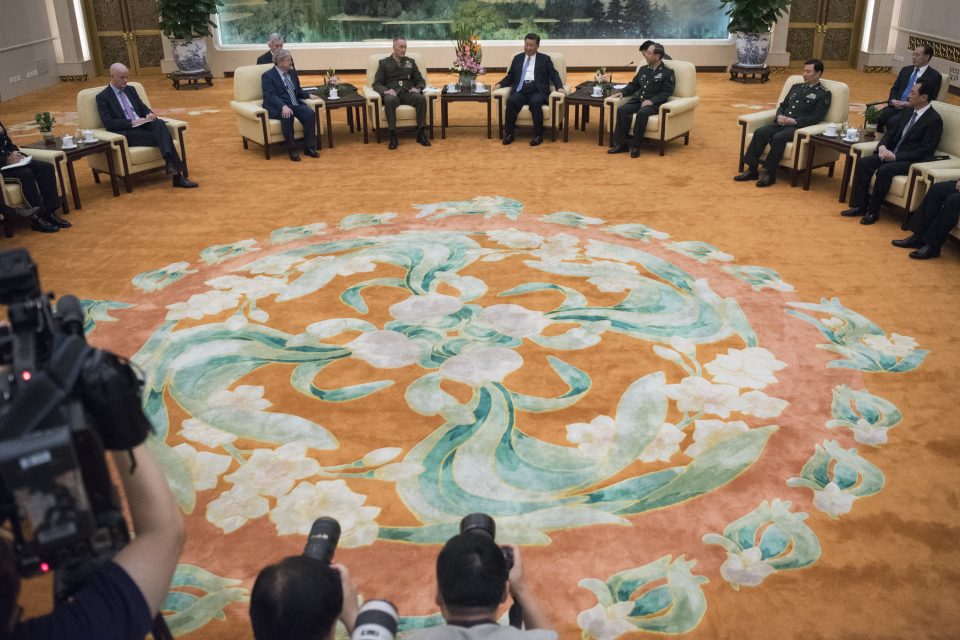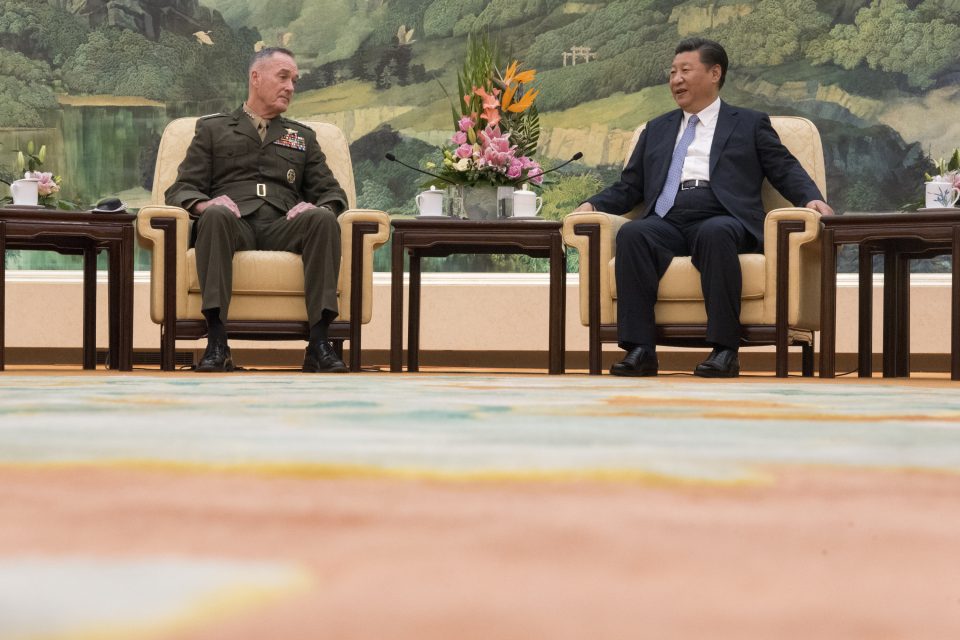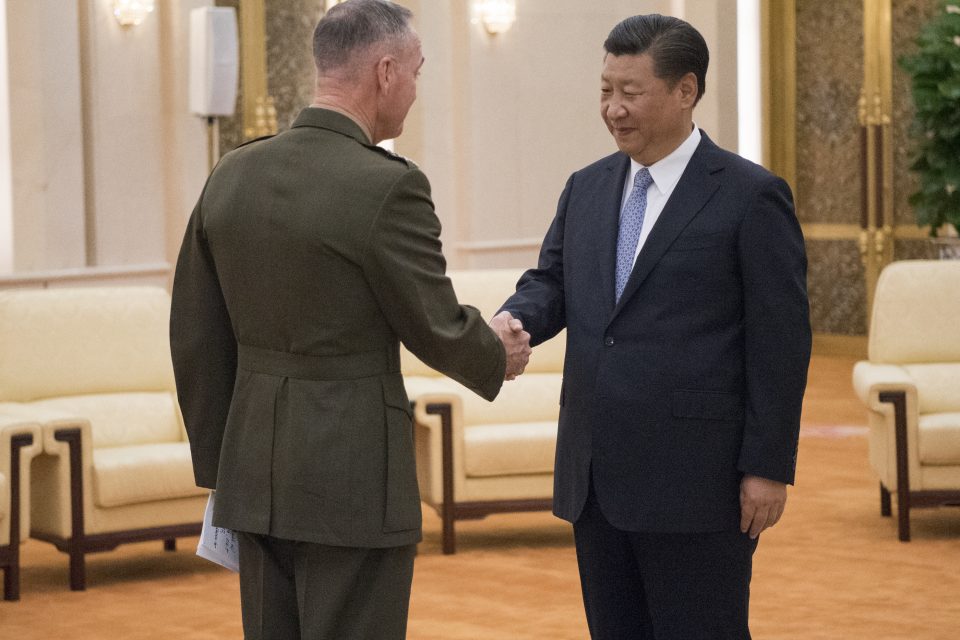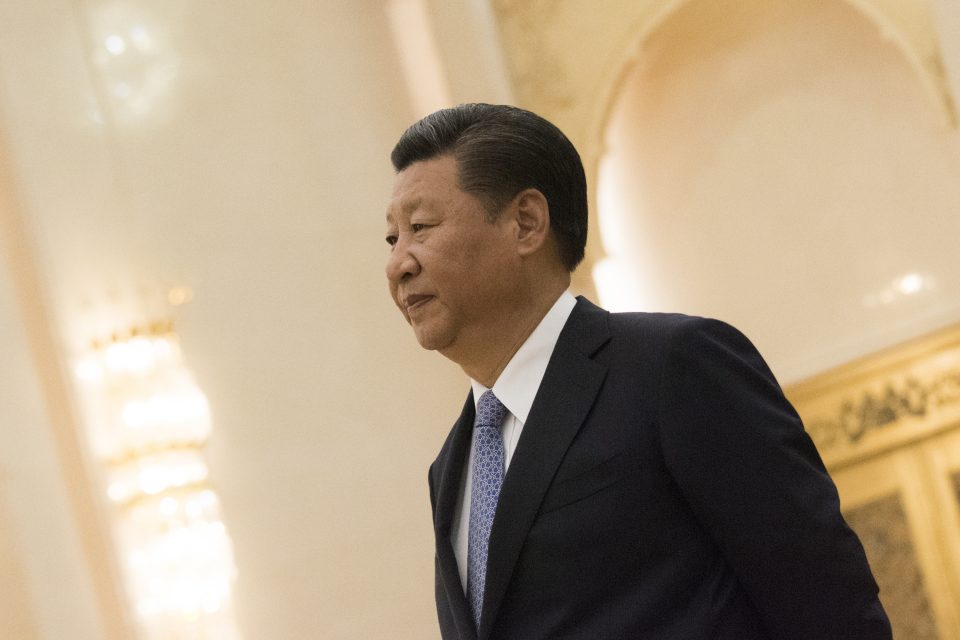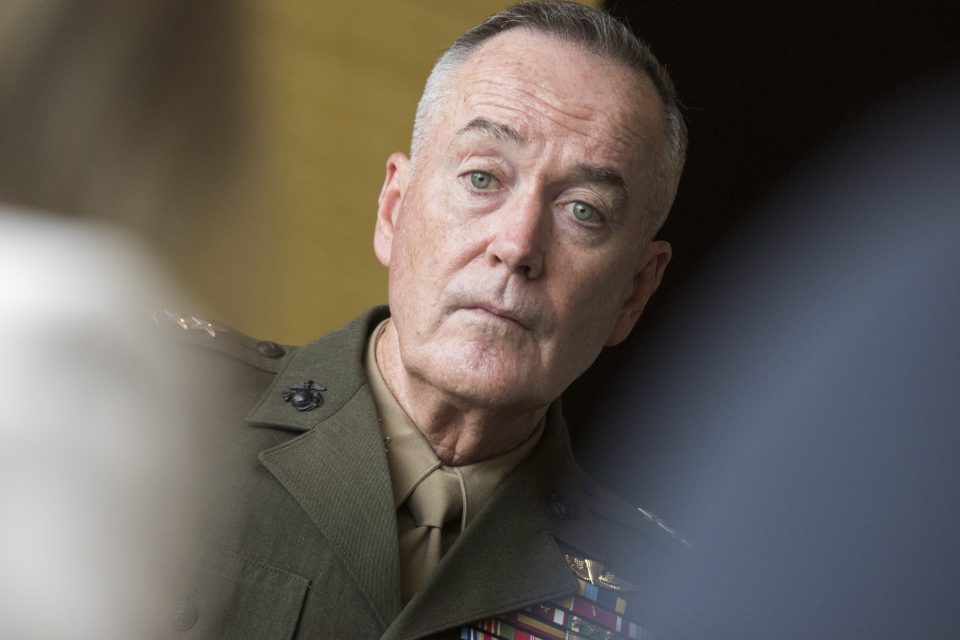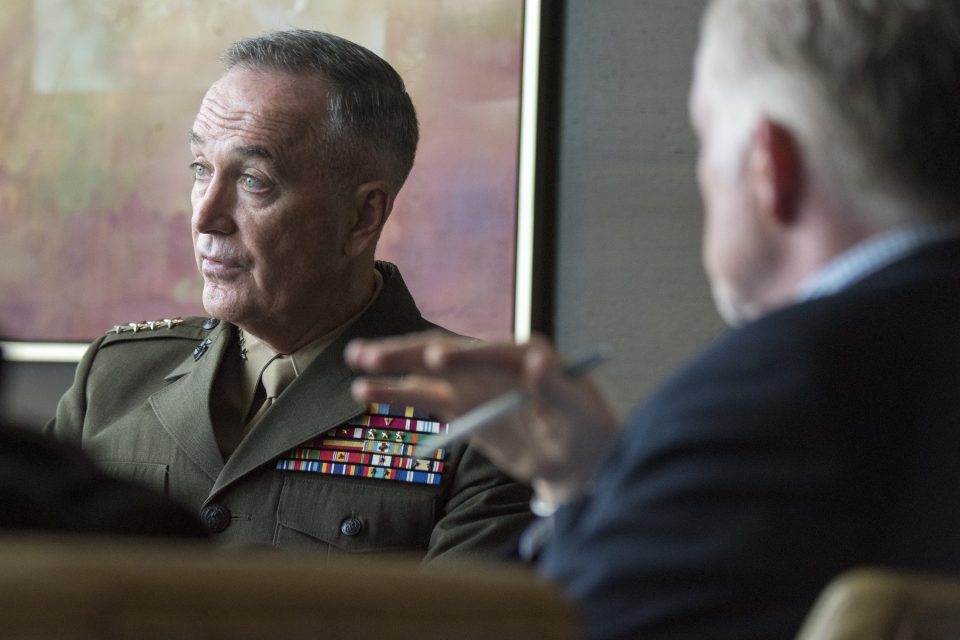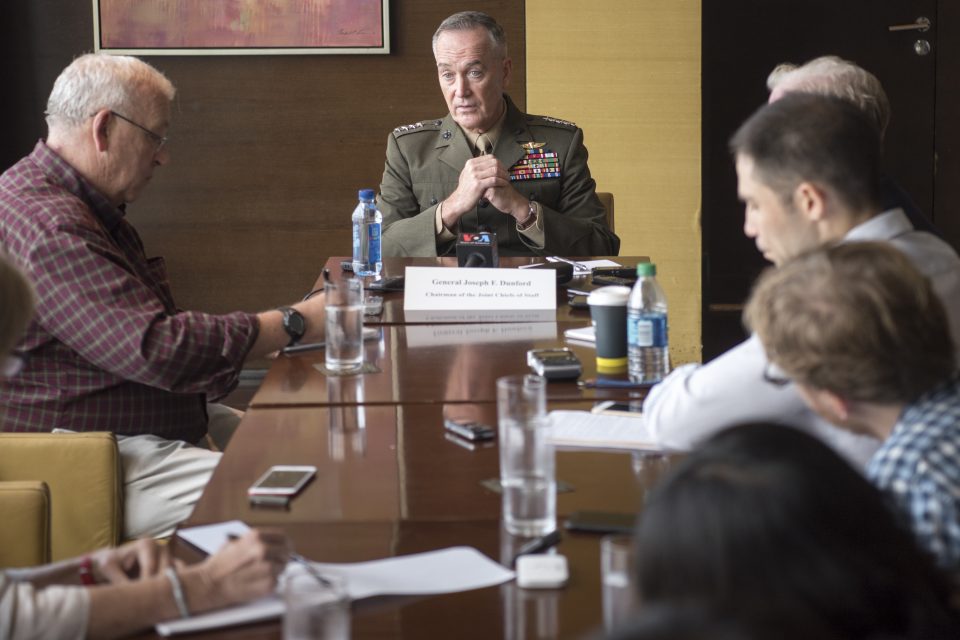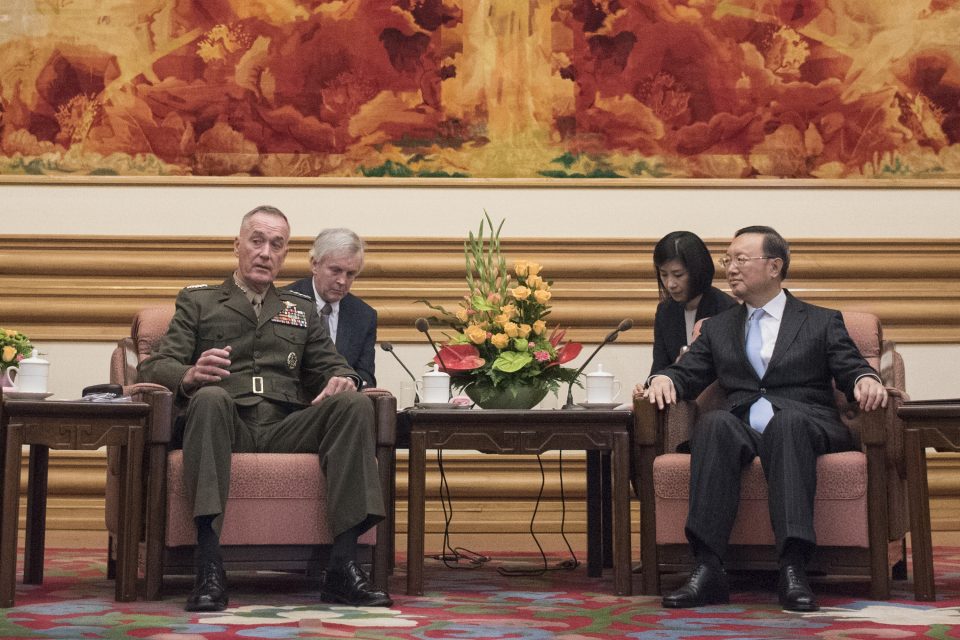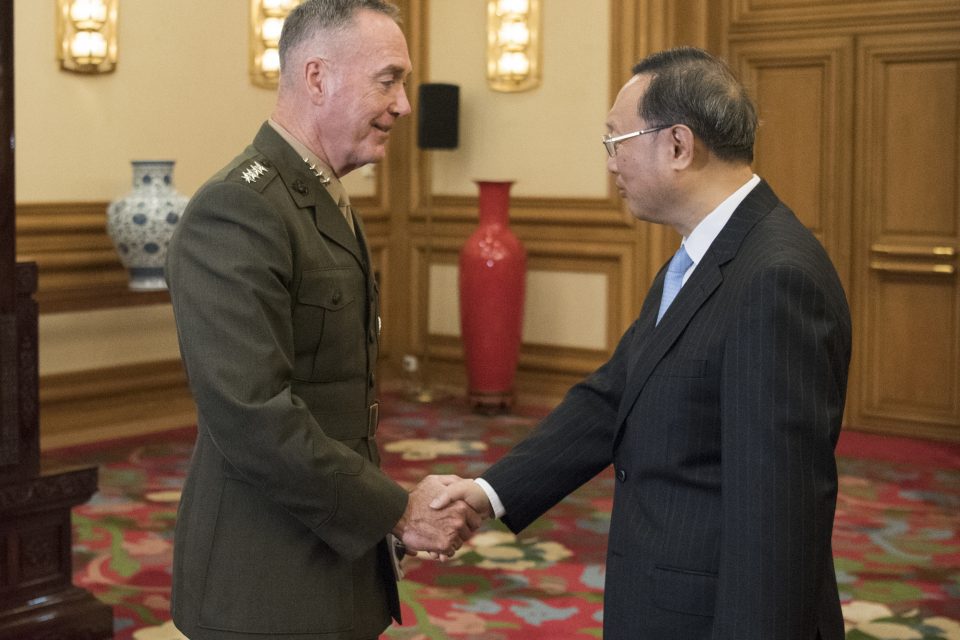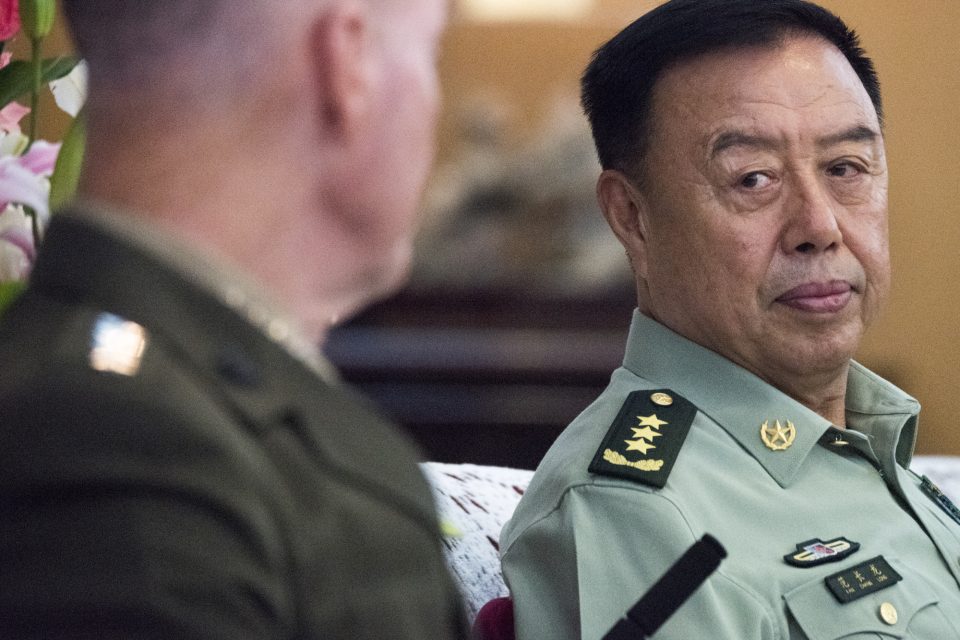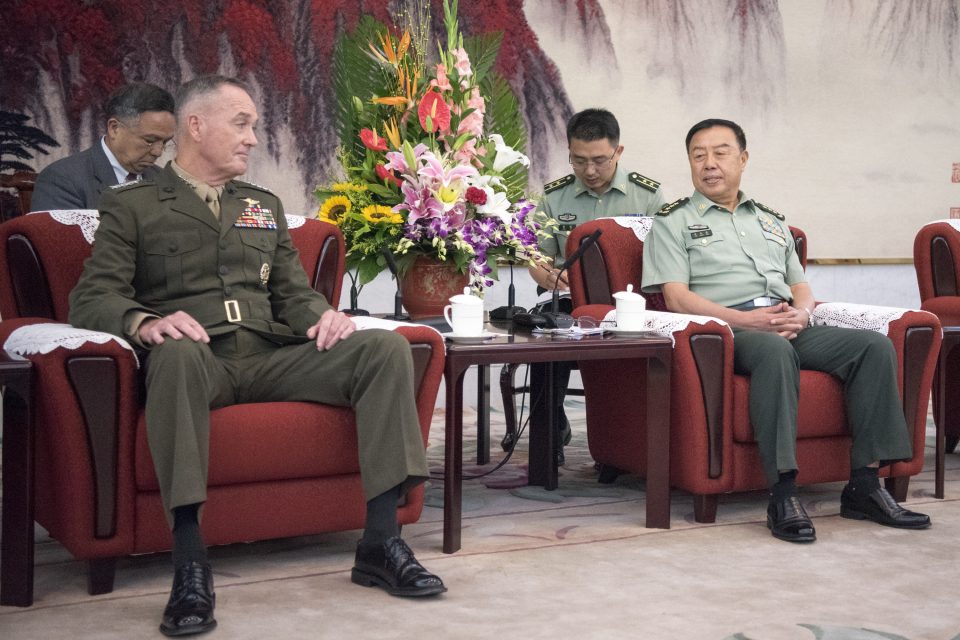2017-08-20 By Richard Weitz
The latest Chinese-U.S. military meeting was refreshingly frank—the two sides made clear their areas of disagreement, which will place Sino-U.S. defense relations on a much firmer footing.
This past week, Marine Corps Gen. Joe Dunford undertook his first visit to China as Chairman of the Joint Chiefs of Staff.
According to Dunford, “The visit underscores U.S. interest in further developing military-to-military relationships between the United States and China.”
Gen. Fang Fenghui, chief of the Joint Staff Department of the PLA Central Military Commission (CMC), hosted the visit.
Gen. Dunford also met with Fan Changlong, CMC vice chairman, and PRC State Councilor Yang Jiechi. Dunford also observed a PLA infantry unit carry out maneuvers at the Northern Theater Command, the PLA unified command closest to North Korea.
The discussions focused on Korea, Taiwan, and the South China Sea.
Dunford pointedly told the Chinese that the Pentagon, while hoping for a peaceful solution to the Korean crisis, was “developing military options in the event that the diplomatic and economic pressure failed.”
Therefore, both defense communities “needed to seriously have a conversation about what might happen if there was military action.”
The Pentagon clearly hopes that the fear of military action will induce Beijing to place more pressure on Pyongyang to curtail its missile and nuclear weapons testing.
Chinese complaints focused on U.S. defense ties with Taiwan, the recently deployed Terminal High Altitude Area Defence (THAAD) missile defense system in South Korea, and the continuing U.S. Freedom of Navigation Operations (FONOPS) in the South China Sea.
Fan said that the “wrong actions on the Taiwan issue, the United States deploying the THAAD system around China, U.S. ships and aircraft’s activities in the South China Sea, the United States close-in surveillance in the sea and air near China have had a large, negative influence on bilateral military ties and mutual trust.”
Still, he added that, “China was willing to work with the United States to find more potential for cooperation, handle disputes and sensitive issues appropriately and ensure military cooperation becomes a positive force in relations.”
Building on the Trump-Xi presidential summit earlier this year, the two defense communities agreed during Dunford’s visit to establish a joint operational communications mechanism between their joint staffs, at the three-star level, to prevent any Korean conflict from leading to an inadvertent Sino-U.S. military clash.
Dunford explained that, “It would also be helpful for us to have effective communications mechanisms in place, so in the event of a crisis, we can immediately speak to each other and avoid miscalculation and a deepening crisis.”
Upon meeting Dunford, PRC President Xi Jinping said that Sino-U.S. defense relations have become a major stabilizing force in bilateral ties. His session with Dunford at the Great Hall of the People represented Xi’s first meeting with a senior U.S. military official since Trump became president.
According to the Chinese media, Xi “applauded the new progress made in relations between the two armed forces, such as enhanced dialogue at all levels and improved military confidence-building mechanisms as well as deepened cooperation.”
He said that, “President Trump and I have attached great importance to Sino-U.S. relations and are willing to actively promote the continuous development of bilateral ties.”
“As major influential countries in the region and the world as well as world’s top two economies,” Xi added, “China and the United States shoulder important responsibility to safeguard world peace and stability and to promote global development and prosperity.”
Further, Xi expressed hope “that the two sides could show sincerity and good-will to each other, maintain close communications, properly handle disputes, and work together on building a better future.”
In addition to inviting President Trump to visit China this year, Xi poetically concluded by observing that, “Despite some ups and downs in the development of bilateral relations, a rainbow comes after wind and rain.”
Still, Dunford acknowledged that, “having the framework for dealing with these difficult issues is different than making progress on them… I think our collective challenge is to sincerely and with candor attack these issues that we have to address.”
He explained that, while decreasing miscalculation is “the minimum standard” for defense contacts, “We should also try to see areas to cooperate.”
Even so, what is most interesting is that, unlike in the past, the Chinese government has not responded to these Sino-American differences by suspending defense cooperation between the militaries.
In the 1990s and the 2000s, little sustained progress was achieved in this area due to such suspensions.
The two militaries and defense departments negotiated several security and confidence-building measures designed to moderate tensions. Though these mechanisms may promoted understanding of their opposing security concerns, they proved highly vulnerable to external shocks.
For Beijing, curtailing Sino-American defense dialogues have been a favored way of signaling displeasure with some development in the overall PRC-U.S. relationship. Whenever a U.S. policy decision seriously angered t political leadership, Beijing ordered the PLA to suspend defense ties with the Pentagon.
The various incidents between the PLA and U.S. military units operating in the international waters and airspace near China repeatedly upended relations. China also regularly suspended defense collaboration following announcements of U.S. arms sales to Taiwan and other disputes.
The suspensions made evident how little China valued the relationship between the PLA and the Pentagon, reflecting deep Sino-American strategic suspicion, their competition for influence in East Asia, and other major differences.
The conflicts and mutual suspicions have provided an unfavorable environment for flourishing defense relations.
Meanwhile, PLA leaders feared that excessive defense transparency could give the United States deep insights into Chinese military vulnerabilities.
Influenced by a strategic tradition that emphasizes deception, moreover, many PLA strategists believe that opaqueness assists in deterring potential adversaries by complicating their defense planning.
As a rising military power, moreover, Beijing did not want to codify the disparities in Sino-American force capacities or military operating patterns that favored the Pentagon.
Furthermore, PRC policymakers strived to obscure the extent of their military buildup.
A more robust relationship between the Chinese and U.S. militaries is useful since the PLA has expanded its forward deployments considerably in recent years.
As a result, Chinese and U.S. forces are operating more in close proximity.
There is a need to avoid and manage PLA-Pentagon accidents, miscalculations, or other incidents, such as the April 2001 collision between a U.S. Navy EP-3 reconnaissance aircraft and a Chinese warplane near China’s Hainan Island.


